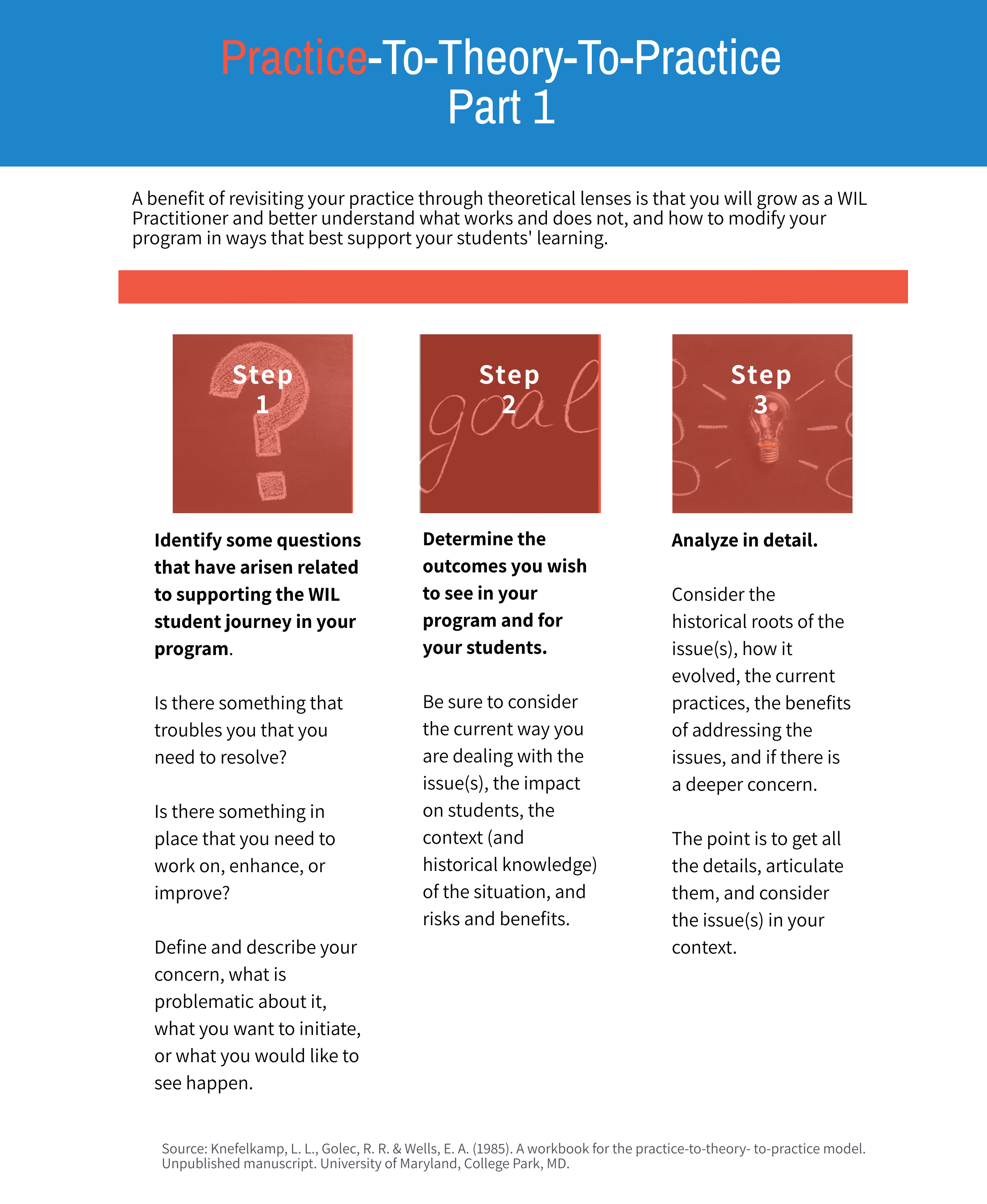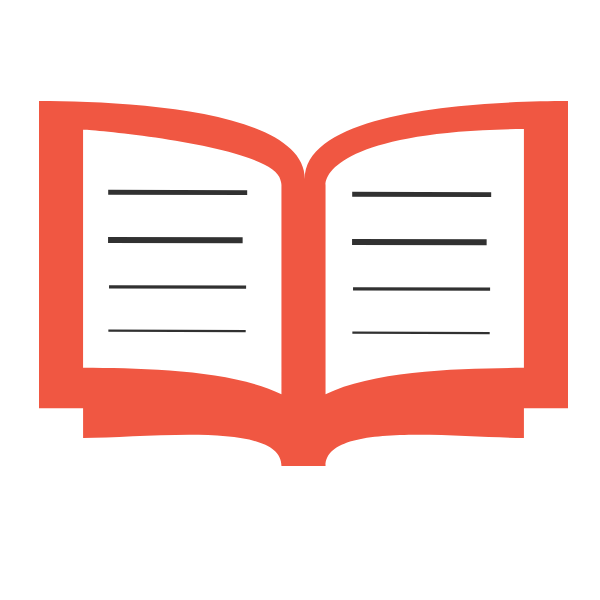Understanding Yourself as a WIL Practitioner
Welcome to Part 1 of the PTP approach to examining your own professional practice. In this part, we will guide you to think about and identify some parts of your practice that you think might benefit from a review and/or some fresh ideas. Once you identify what you want to take a look at more closely, you will need to also identify why you selected this activity or item, and what you hope to gain from reflecting upon it.

Reflective Thinking
To get a better understanding of yourself as a WIL Practitioner, we invite you to take time to examine elements of your WIL program and/or practice. We offer you this Reflective Journal to record your thinking and ideas. Download this document and use it alongside your participation in this professional development opportunity.
|
A powerful way to understand yourself and your practices involves reflecting on your thinking using professional narratives and story telling. Narratives allow for sharing your story, one "that is personal, filled with passion that embraces personal thoughts, feelings and observations as a means to coming to an understanding of the social context of one’s experience" (Martin, Slade, & Jacoby, 2019, p. 304). The outcomes of your reflections can offer you a better understanding of yourself as a WIL Practitioner. You should leave this professional development opportunity with:
|
You may want to write about ideas that are new for you as a WIL Practitioner or focus on something that you have wanted to improve for a while. You might look at a particular practice, such as a site visit, or choose a stage you feel needs work, such as preparing your students for their WIL experiences. Take time to engage with the reflective prompts throughout this professional development opportunity, even if it feels awkward at first. We recognize that many folks in the WIL field are busy, but it is critical to take time to stop, take a step back, and reflect on our practices and beliefs. WIL Practitioners' jobs are often very demanding but taking the time to engage in professional contemplation will go a long way towards refreshing yourself, your practice and working towards changes for equity and inclusion. Once you do, the awkwardness of reflecting will diminish and the value for the time taken (even if it's modest) should make it worthwhile!
As you engage with the reflective prompts throughout this professional development opportunity, keep the diversity of WIL students in mind. Most institutions have calls to decolonize and calls for equity and inclusion. These issues require each one of us to consider how exclusion based on race, gender, ability, sexuality, religion, linguistic backgrounds and socioeconomic status are at play in our work on individual, interpersonal and institutional levels. As you navigate the material ahead, and in your reflections consider the ways you might make WIL programs more accessible as an individual and in your programming. You might want to bring such issues to your team. Together, you may consider the historical roots of the issues, how they evolved, the current practices/responses you are taking, and what you can change.
 |
Click here if you are interested in learning more about the Barriers to Work-Integrated Learning Opportunities. |
Having greater knowledge of yourself as a WIL Practitioner and setting goals for your program are really the starting points of this journey in understanding your practice in the field of WIL.
Reflective Prompts
Below are some specific reflective questions that might help as you start your reflective journaling during Part 1 of the PTP process. Please record your ideas in the Reflective Journal.
|
What drew me to my work in WIL? What makes me good at my job as a WIL educator? What do I need to learn a bit more about in my role? What is my approach to working with students? Where did I learn this? Does this work for all students? In what ways am I flexible in my approach and in what ways am I fixed? What is going on with the students in my program? What are their challenges? What do I love about my work and what do I struggle with? What seems to work well (or not) in my support of WIL students throughout their journey? What would I like to see or help to develop? What do I need to learn more about? What other areas of interest in the WIL field might I have? What do I hope to contribute to WIL? What would I like to see happen in the field of WIL (at my institution, in my province, in Canada) and what role can I play in that? |
If you have decided to engage with a colleague or a team of peers in this professional development opportunity, this would be a wonderful moment to share some of your "ah-hah" moments with one another. With a better understanding of yourself as a WIL Practitioner, in the next section you will be invited to think about the lenses you bring to your practice.